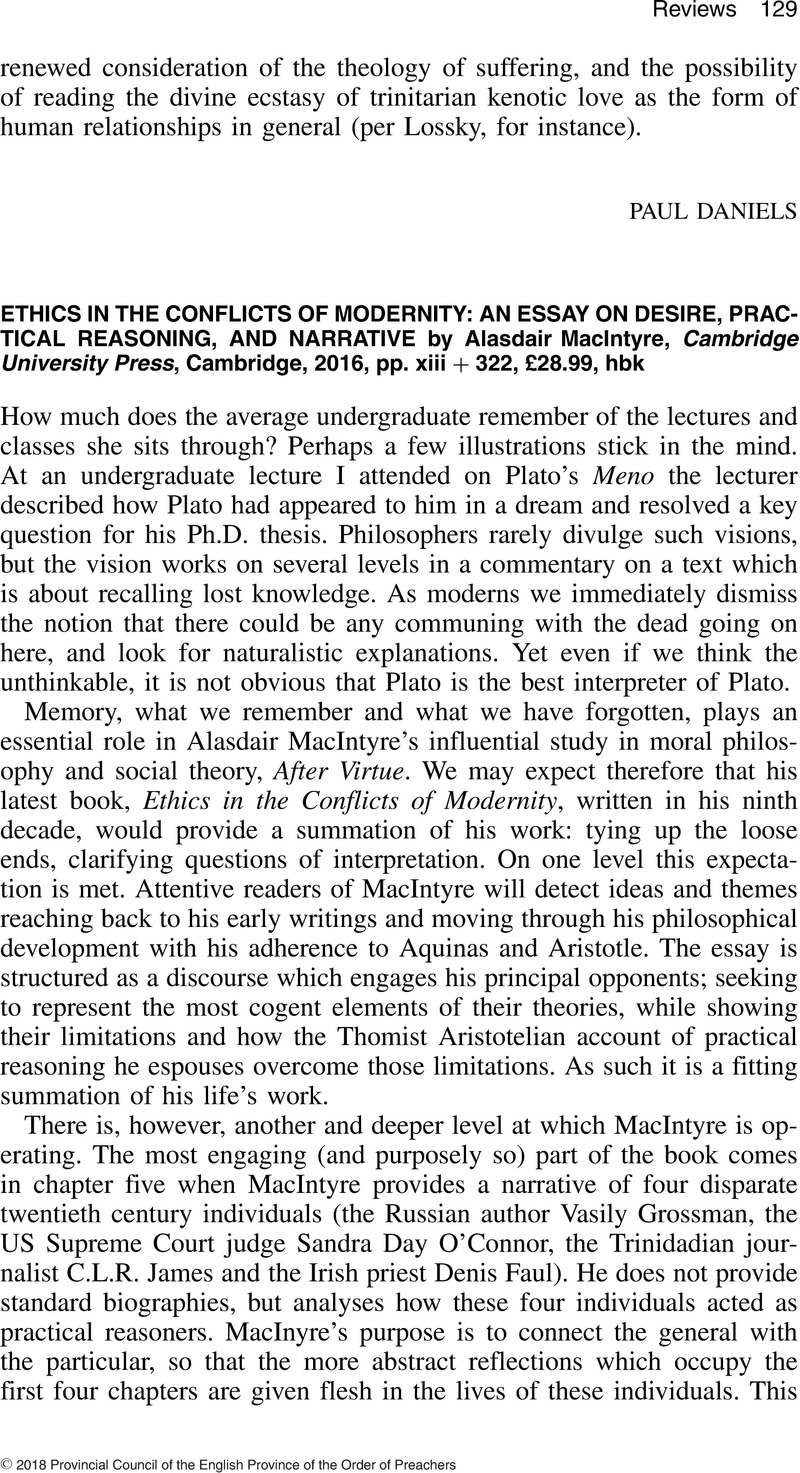No CrossRef data available.
Article contents
Ethics in the Conflicts of Modernity: An Essay on Desire, Practical Reasoning, and Narrative by Alasdair MacIntyre, Cambridge University Press, Cambridge, 2016, pp. xiii + 322, £28.99, hbk
Review products
Ethics in the Conflicts of Modernity: An Essay on Desire, Practical Reasoning, and Narrative by Alasdair MacIntyre, Cambridge University Press, Cambridge, 2016, pp. xiii + 322, £28.99, hbk
Published online by Cambridge University Press: 01 January 2024
Abstract
An abstract is not available for this content so a preview has been provided. Please use the Get access link above for information on how to access this content.

- Type
- Reviews
- Information
- Copyright
- Copyright © 2018 Provincial Council of the English Province of the Order of Preachers


